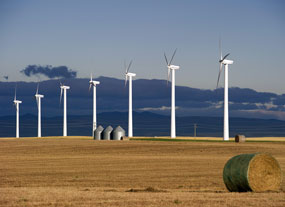While many Canadians are cheering at the country’s new commitment to reducing carbon emissions, corporate law firms with large and lucrative traditional oil and gas practices could be forgiven for greeting developments of the last few days with mixed emotions.
For decades, oil and gas work has fed mergers and acquisitions, construction law, mining, corporate finance and a myriad of other corporate-commercial practices. It’s difficult to think of a large corporate law firm that doesn’t have a presence in Calgary.
For them, Alberta Premier Rachel Notley’s ambitious new climate strategy and the agreement between Prime Minister Justin Trudeau and the provinces on cleaning up the environment ahead of next week’s UN climate change conference in Paris have very real business repercussions.
For starters, they suggest the billions of dollars in foreign investment that once flowed in to oil-sands and shale-gas projects, and the massive pipeline and mining projects needed to support them, is not coming back. Instead, on the flip of a dime, it’s all about renewable energy.
Talk about climate change. So what does it all mean for Canada’s corporate law firms? “That’s a really great question,” says Robert Seidel, Canada managing partner of DLA Piper. “This is definitely a growth area. It’s past emerging — it’s emerged.”
And it emerged with a roar. Competition for renewable energy work is expected to become as fierce in the next few years as it has been for oil and gas work for decades.
Most corporate law firms have alternative energy practices. In the main, the groups are run out of their Toronto offices, not Calgary, and in the sometimes bruising world of the internal law firm power grid, they have not always been among the most actively promoted.
“A lot of firms are actually in that space already, it’s a question of how they project it,” Seidel says. “But there will be increased competition in the area, for sure.
“I think the first phase will be the branding of existing lawyers that have that experience, then it will be augmentation through lateral recruitment and ‘training up’ of internal resources.”
While traditional oil and gas is a highly regulated and very technical practice, he says, many lawyers who work in the area should be able to transfer at least some of their skills into the alternative-energy space.
“The skills that are portable are things like project finance and understanding the whole debt-equity market associated with projects like that. So it’s not the depth of knowledge around oil and gas that is applicable, it’s the platform skills that really relate to projects in the energy space.”
Read more: What is a DSRA in project finance?
While traditional oil and gas work may wane, he doesn’t foresee a “significant material ouch factor,” because of the alternative-energy work that will be generated.
Corporate law firms with large Calgary offices are the ones that stand to be hurt the most in the near term, but “billions of dollars will be spent developing alternative sources of energy,” says Jay Kellerman, managing partner of the Toronto office of Stikeman Elliott LLP.
Those companies will need corporate lawyers.
“My sense is the world is also still going to need oil, and we’ll be there. We’re focused on the oil sands given our Calgary office which is, of the other large firms, the smallest office in Calgary — and in a time like this, that isn’t a bad thing. But we are also clearly looking at alternative energy as well whether solar, wind, batteries, or technology that hasn’t been developed yet.”
Kellerman expects Stikemans to expand its renewable energy group but “in a measured way,” as required. “We won’t jump in with two feet, but we certainly have the capacity and capability to do more of this.”
Like Seidel, he says many lawyers who do M&A, securities and corporate finance work in the traditional oil and gas sector should be able to do alternative energy deals without too steep a learning curve.
“A lot of what our firm would do in Calgary is private and public M&A. That will happen in the alterative energy space as well. Off-take agreements and other transmission agreements, I think it’s somewhat of a transferrable skillset — at times, perhaps, harder to do than others, but certainly possible.”
While Canada’s renewed public commitment to climate change really took off with the election of Prime Minister Trudeau about a month ago, Alan Ross, a partner at Borden Ladner Gervais LLP in Calgary, says law many firms have been quietly been repositioning their traditional energy practitioners for some time.
“Lawyers that two years ago were traditional oil and gas lawyers are trying to rebrand themselves as renewables counsel — we’re seeing a lot of that,” he says. “You can really tell based on changes in marketing, changes in presence at conferences, on blogs, on every sort of external outreach. Firms are very much lining up for international and national companies looking at doing [renewable] deals and projects in Alberta.”
Ross says it’s not all financial gloom and doom. Elements of Alberta’s new plan, such as the phasing out all the province’s electricity-generating coal plants, may bump up work for natural gas producers.
“Alberta, in addition to being an oil-and-gas province, has an awful lot of coal, and the transition off coal may well involve converting coal plants to natural gas.
“We’re already starting to see interested international players, some of the developers and financiers from other parts of North America and Europe, with a real interest in coming to the last jurisdiction coming off coal.
“Law firms are positioning themselves for that as well.”





